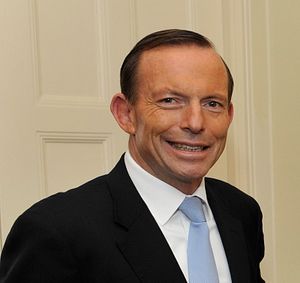Stronger military ties dominated the agenda this week when U.S. President Barack Obama met with Australian Prime Minister Tony Abbott for the first time since the latter’s election last year.
The meeting at the White House mostly focused on the countries’ close bilateral ties, with discussions on stepping up the U.S. military presence in Australia for “additional reach” into the Asia-Pacific region.
The two leaders formalized an agreement struck in 2011 that will see the deployment of 1,300 U.S. Marines in the Northern Territory. Meanwhile, new agreements are now on the table.
Obama explained: “In addition to the marines that are now in Darwin and the rotations that have been established, we actually have arrived at additional agreements around force postures that will enhance the bilateral cooperation between our militaries and give us additional reach throughout this very important part of the world, and we’re grateful for the cooperation there.”
While the specifics aren’t yet known, further military deployment to Australia will likely include the use of bases in Western Australia by U.S. Navy destroyers or other vessels. Meanwhile, the number of U.S. Marines based in Darwin will rise to 2,500 by 2017.
At the meeting, Obama praised Australia for its military support while gratefully acknowledging that Canberra had boosted its defense budget despite its economic austerity in other areas. The U.S. president also noted that the two nations “shared a worldview.”
“There are a handful of countries in the world that we know we can always count on, not just because they share our values, but we can count on them because they have real capacity,” Obama said, “Australia is one of those countries.”
“Aussies know how to fight and I like having them in a foxhole if we’re in trouble,” he added.
For Australia’s part, Abbott assured Obama of Australia’s dependability and said that the U.S. shouldn’t have to shoulder the burden of “securing peace and prosperity” on its own.
“The U.S. has to share many burdens. The U.S. has paid a very high price to secure peace and prosperity for many countries not just itself and the U.S. should not have to do all that work on its own,’’ Abbott said.
Australia has been involved in most major U.S. conflicts since World War II: Korea, Vietnam, the Gulf War, and the wars in Iraq and Afghanistan most recently.
Meanwhile, in a speech to the American Chamber of Commerce, Abbott called on Americans not to “begrudge” the rise of China, adding that “movement, in just a generation, of hundreds of millions of Chinese into the middle class is a transformation unparalleled in human history.”
In previous months, the Abbott government had adopted a more confrontational tone in its rhetoric towards China. After Foreign Minister Julie Bishop criticized Chinese actions in the East China Sea last year, Chinese Foreign Minister Wang Yi blasted Australia at a joint press conference with his Australian counterpart, saying Australia had “jeopardized bilateral mutual trust and affected the sound growth of bilateral relations.”
Abbott and Obama also discussed climate change, an issue where the two leaders have differed sharply, with Abbott saying the two had “agreed to disagree,” about the methods of tackling the issue.

































